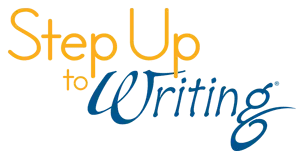Writing and the Science of Reading

For years, much time and effort has been spent by district and state leaders across the country to help educators understand the science of reading to improve educational outcomes for students. The extensive body of research has become more accessible to teachers and administrators, driving educational reform. This is important work, and we are seeing many positive changes happening because of it.
However, there has not been as much emphasis on writing instruction or the body of research available to help educators understand best practices in writing instruction. As in the past, writing is being assigned, but not taught in depth, or taught in isolation, and students are lacking many of the discrete skills needed to become proficient writers.
What does the research tell us?
A meta-analysis by Dr. Steven Graham and Dr. Michael Hebert examined a myriad of studies that demonstrated positive effect-sizes on reading skills when students wrote about their reading. When students write about reading passages, they interact more deeply with the content by making connections, analyzing, and using the information in different ways. By using the information and vocabulary from the text, students are more likely to retain the information longer and increase their depth of vocabulary knowledge. Many writing skills are reciprocal to or related to reading skills and they strengthen each other. A simple example is writing letters and words. As students are taught the sounds, they should be learning how to form the letter/letters that make those sounds. Having students say the sound while writing the graphemes increases retention and mastery of the sound-symbol correspondence. Reading a variety of sentence structure and teaching those structures increases knowledge of syntax and grammar. As you can see, reading and writing need to be taught together. Key writing activities include note taking, summarizing, answering questions, and creating questions about the content.
Why is teaching writing so difficult?
One comment I hear from teachers is that their educator training did not prepare them for teaching writing. In fact, as an English education major, I was only required to take one class about teaching writing. Additionally, writing is the most difficult task we ask students to do. Think about all the skills students need to have mastered to write a proficient essay: Structure of an essay, genre, thesis statement, organization, how to include evidence and examples, use of transitions, precise grade-level vocabulary, syntax, capitalization, punctuation, usage, spelling, spacing, and the list goes on and on. Before those skills can be used proficiently, students must know even more discrete skills, such as phonemic awareness and phonics, word writing, what makes a complete sentence. A good analogy is that of learning to play an instrument or a sport. Let us take learning to play the piano. Before someone can play a concerto or even a song, one must learn what the keys are, how to read music, learn notes and then chords, how to use the pedals, and how that all comes together. Children start with learning one note at a time and playing simple songs like “Twinkle, Twinkle Little Star.” They must practice repeatedly, not just during their lessons.
This applies to writing skills, as well. Students must take one step at a time, practice repeatedly, and move from simple to complex (Berringer et al., 2022). You might ask, “What if my older students are missing some more foundational skills, but need to write essays for their classes and the state test?” To meet the needs of these students, it is necessary for teachers to find time to form smaller learning groups to differentiate and scaffold for various needs. Although this takes time and planning, it is well worth it.
K–1 teachers might wonder how their students are expected to write when they are still learning to hold a pencil and may not know their letters or sounds yet. Emergent and beginning writers should be allowed to write in their stage of print development after practicing in oral language. All students benefit from a gradual release of learning through modeling, guided practice, to independent practice (Person and Gallegher, 1983).
If I teach ELA, I do not have enough time to provide all of the needed instruction and practice. When should writing be taught?
Writing should expand beyond the ELA block/class. Students need to write across all disciplines, including specials and electives. The standards are clear and so is the research—teaching and assigning writing is not the sole responsibility of the ELA educator. In science, social studies, and math, students should be taking notes, summarizing, and answering questions in writing. As students move up in the grades, they should be writing longer constructed responses, essays, and reports across content areas. Since students need anywhere from 20–45 minutes of writing instruction a day plus instruction in vocabulary and grammar, infusing this instruction and practice into multiple content areas allows this amount of time to be met more easily. Because writing about reading strengthens comprehension, writing across content areas is beneficial to students’ learning.
Writing is complex, but teaching writing does not have to be so difficult if we understand the research and best practices in writing instruction and connect reading and writing for our students. Using strategies grounded in that research, like those found in Step Up to Writing®, can help increase student achievement. Join me for the EDVIEW360 podcast, where I continue discussing this topic.
Learn More

